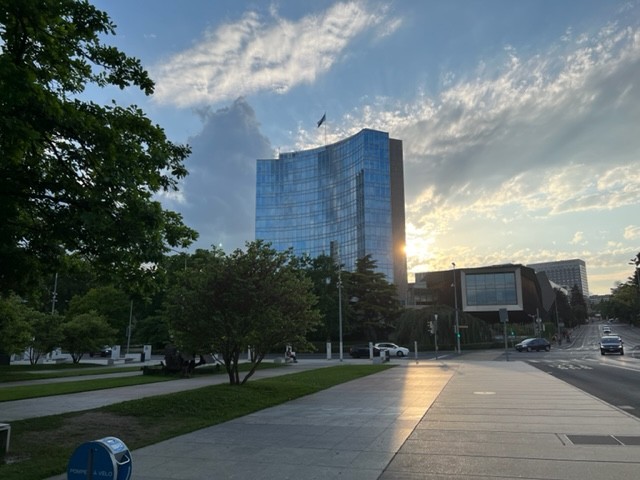The day opened with a focus on music with the item Copyright Related to the Digital Environment and presentations from a series of 7 experts who had prepared reports on different aspects of the music industry in different regions and who were then able to answer questions from observers and delegates.
The day’s side event was an update on WIPO’s Alternative Dispute Resolutions for Digital Copyright- and Content-related Disputes organized by the WIPO Arbitration and Mediation Centre. IPA delegate Chief Ucenna Cyril Anioke participated in the session and reported that it was well attended and that the presentations were on target and provided food for thought.
The Copyright Related to the Digital Environment discussions continued, taking up most of the day and closing just 45 minutes ahead of the scheduled close of SCCR 42 with discussions on the resale right, the rights of theatre directors and the public lending right yet to start.
A long coffee break followed with the chair finally resuming proceedings at 18:50pm.
The Chair rattled through the 3 remaining agenda items with an international conference on theatre directors’ rights put forward, and the resale right discussions postponed for a future meeting.
The delegate for Sierra Leone took the floor to reiterate their support for a study on public lending rights noting that the WIPO secretariat had the resources to conduct such a study in a neutral way without pre-empting any formal work of the Committee on the issue. The exchange that followed revealed starkly differing views among Member States and observers. The Chair, sensing an absence of consensus agreed to postpone the issue for further discussion at the next session.
The reason for the delay to the day’s proceedings was finally revealed as the Chair handed over to Deputy Director General Sylvie Forbin who closed the day by announcing the draft conclusion for the discussions on the Broadcasting Treaty with the text to be revised and presented again at SCCR 43. There was no consensus on a proposal for a technical meeting in 2022 but to hold two SCCR meetings in 2023.
Regarding Exceptions and Limitations, there were two conclusions. The next SCCR would see presentations on cross-border uses such as in online education and research. The WIPO secretariat will also be expected to develop toolkits targeted at technical assistance programs which could help member state craft laws and policies which support education research and reservation of cultural heritage developed in consultation with experts and stakeholders from beneficiary communities and rights holders.
A final report will be circulated in the coming days is available here and with that Aziz Dieng brought the proceedings to an end and the remaining delegates and observers drifted out, exhausted, into the Geneva evening.

